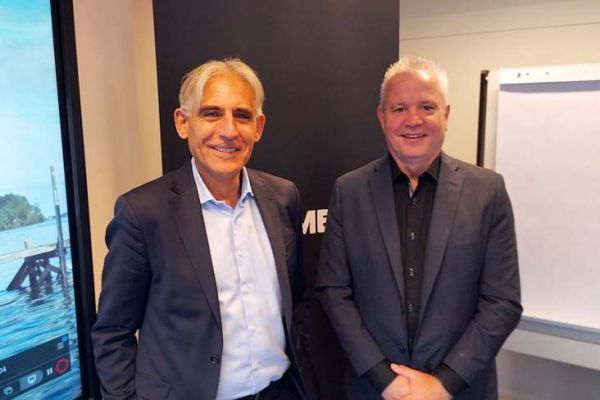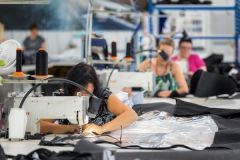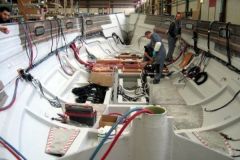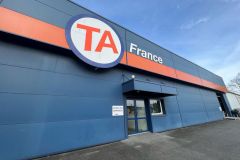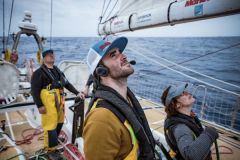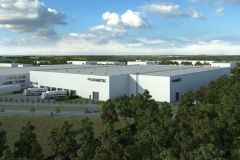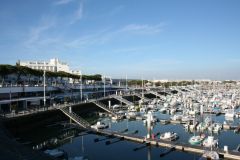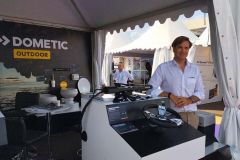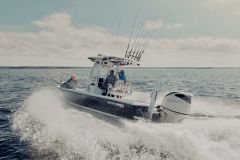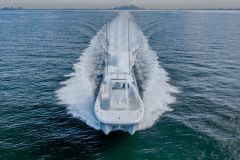A diversified and growing business
With its origins in the hotel and transport industries, the Swedish Dometic Group has built up a strong position in the marine sector. Since taking its first steps in the field in 2002, it has built up a vast brand portfolio, notably by acquiring Seastar directions or Oceanair blackouts in 2017. By 2023, the Marine business will account for nearly a quarter of sales, with 24% of the Group's business. Broken down by sales channel, original equipment accounts for 43% of sales, followed by distribution at 30%, with services and aftermarket rounding out the total. Dometic CEO Juan Vargues is delighted with this diversified business, which helps to smooth out risks: "The leisure vehicle sector reacts much faster than the navy in the event of a crisis. We're nearly nine months apart."
In 5 years, Dometic Marine's sales have increased 5-fold between 2017 and 2022, reaching ?587 million. Profitability has reached 26% EBITA.
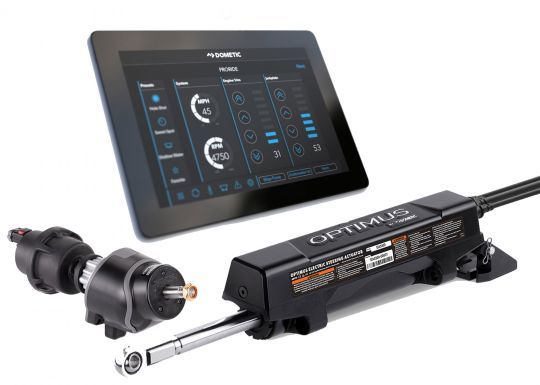
Bringing technology to the boating industry
Eric Fetchko, President of Dometic Marine, explains the different strategies for growing Dometic in its markets: "As an equipment manufacturer, we measure the number of dollars on a boat, and think about how to increase it. It could be with more products, or by introducing more technological products. We're also currently working on opening up to professional boats, which also involves new products and technology. In 1960, we were leaders in mechanical steering. Then we switched to hydraulics in the 1980s, to electro-hydraulics in the 2000s, and today to pure electric. We weren't afraid to cannibalize our own market, because otherwise someone else would have done it. What's more, I think the acceptance of new technologies in our rather conservative industry has been faster in 5 years than in the 50 years before."
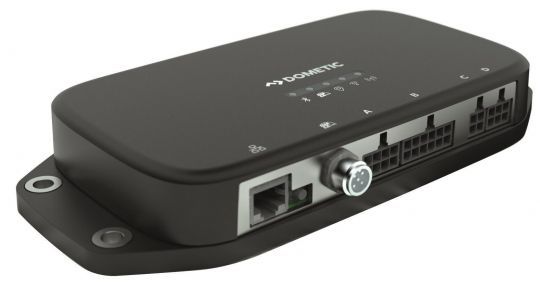
Innovating to face the crisis
Faced with the challenges of a potential crisis, Dometic believes that innovation above all must not be abandoned, and is working in particular on the digitalization of the boat and its electrification, with the Dometic Gateway, currently being launched in North America, a black box for controlling on-board equipment. Eric Fetchko concludes with this example: " We're in a good position to do this, because we make everything that consumes the most electricity, and can work towards the goal of running everything without a generator. There are many innovations to come on the digital boat. That's why it's important to keep your engineers on board during a recession, and to be ready, not necessarily to be the first, but to be the second and the best so as not to be overtaken. Technology is a growth lever in a stagnant market. In 95% of cases, it's not the market leader who brings innovation. We want to be in the top 5%, as we were for electric outboard steering. "

